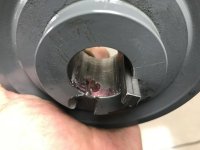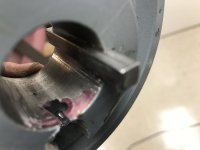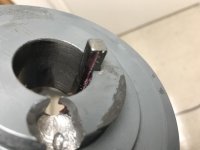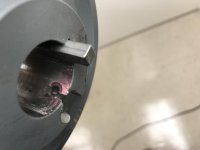IMHO TOO MANY misuse Locktite Products or use the wrong version of it. I also find that very few people actually prep the work properly prior to use.
IMO Red (permanent) should only be used in a situation that will never ever require the possibility of disassembly for repair. Even though they state that it is removable with heat - that is sometimes not truthful, practical or applicable. When trying to use heat to remove, if the parts you are heating are heat sinked to a large shaft or piece of metal, many times the heat is drawn out faster than the Locktite is being loosened and the removal process is unsuccessful. Secondly, there are times that Locktited parts are too close to materials that are easily damaged from heat or times you just can't get in to apply the correct amount of heat. ONLY use the Red when you never ever will have to disassemble (at least IMHO). Blue (removable with hand tools and using no heat) has never failed me and never opened up unintentionally! As with ANY brand or type of Thread Locker or parts locker, the area should be thoroughly cleaned out with Alcohol, Acetone, or alike. Make sure they are also perfectly dry prior to application and use only enough to get the job done - DON'T slather the parts or threads with the stuff! Locltote will migrate and bond things you don't want bonded if too much is applied!
For 99.9% of most applications Blue is all you will ever need (IMO). I do use the Red when I am making Tools and Fixtures in my Workshop that I NEVER want or have to separate, but Blue is my Go-to. Again, prepare work properly and don't over apply.
NOTE #1: Some manufacturing Company's use pre-coated thread lockers on screws and even though it is red in color, it probably is not Locktite - just another mild strength locker that is able to be pre applied with longevity but is NOT nearly close to the strength of Locktite. This is not known to some - but now you know.
NOTE #2: As most here already know...... I almost never use any Locktite on Firearms as I have never seen any reason to if the gun is properly assembled with properly torqued screws. Thread Lockers are NOT a substitute for incorrectly tightened screws! While I have seen some screws on firearms assembled with a thread locker of some sort, I do not believe it to be Locktite and is not all that strong - at least that has been my experience. I do not believe the red colored thread fastener on S&W Yoke Screws is Locktite - just a mild keeper.




